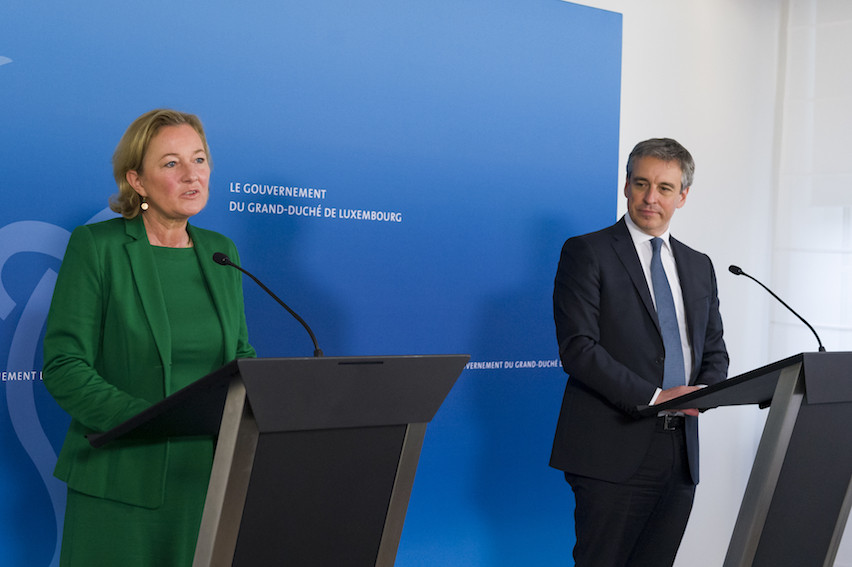And the government hopes a large number of people take up the offer, so they can collect the data.
Speaking at a press conference on Tuesday, officials said they wanted maximum capacity to reach 20,000 PCR swab tests per day by 19 May.
Most of that capacity will be in the form of 17 testing centres, primarily drive-through facilities, which will be located throughout the country, said Claude Meisch, the education and research minister (DP). The centres will be open to Luxembourg residents and cross-border commuters alike, he stated.
The testing centres will be operated by private companies who have medically certified staff. In a shift from current procedures, no doctor’s prescription will be required.
High school tests
Separately, around 6,000 final year high schools students and 2,500 teachers will be able to get tested the week of 4 May, when high school classes resume. Those tests are completely voluntary, but Meisch encouraged students and staff members to sign up, saying the results will make an important contribution to covid-19 transmission research.
Dr Ulf Nehrbass of the Luxembourg Institute of Health is seen speaking at a press conference on the government’s large-scale covid-19 testing programme, 28 April 2020. Photo credit: SIP / Jean-Christophe Verhaegen
National sample size
Somewhere between 50,000 and 100,000 tests need to conducted each week in order to sufficiently inform the government on the status of the outbreak, according to Dr Ulf Nehrbass, head of the Luxembourg Institute of Health and spokesman for the country’s Covid-19 Task Force. If the number of new infections is held in check then the lockdown could be further loosened, but if numbers spike then restrictions could be tightened again, Nehrbass explained.
In response to criticism that the names of researchers working on covid-19 projects have been kept confidential, Nehrbass said that was a government decision. (The government released the names of task force members a few hours following the press conference.)
Paulette Lenert, the health minister (LSAP), said preliminary results of the Convince study, a parallel project which is testing about 1,500 people on a regular basis, should be released at the end of this week.
Additionally, Lenert said the government would issue guidance “soon” on when non-emergency medical professionals, such as dentists and physiotherapists, could reopen their practices.
Long-haul process
The press conference revealed little fresh information, but apparently was intended to help bring the population along with the government’s strategy.
“The virus is still present,” said Lenert. No drug treatments and no vaccine is available, she reminded residents. Deconfinement will need to take place step by step and it is still important for everyone to take precautions to slow the transmission of the virus. People who test negative for covid-19 will need to be checked again.
While the number of new cases is lower and she is “seeing light at the end of the tunnel,” Lenert stressed that social distancing, large scale testing and isolating infected people will remain “very important” for many weeks to come.

